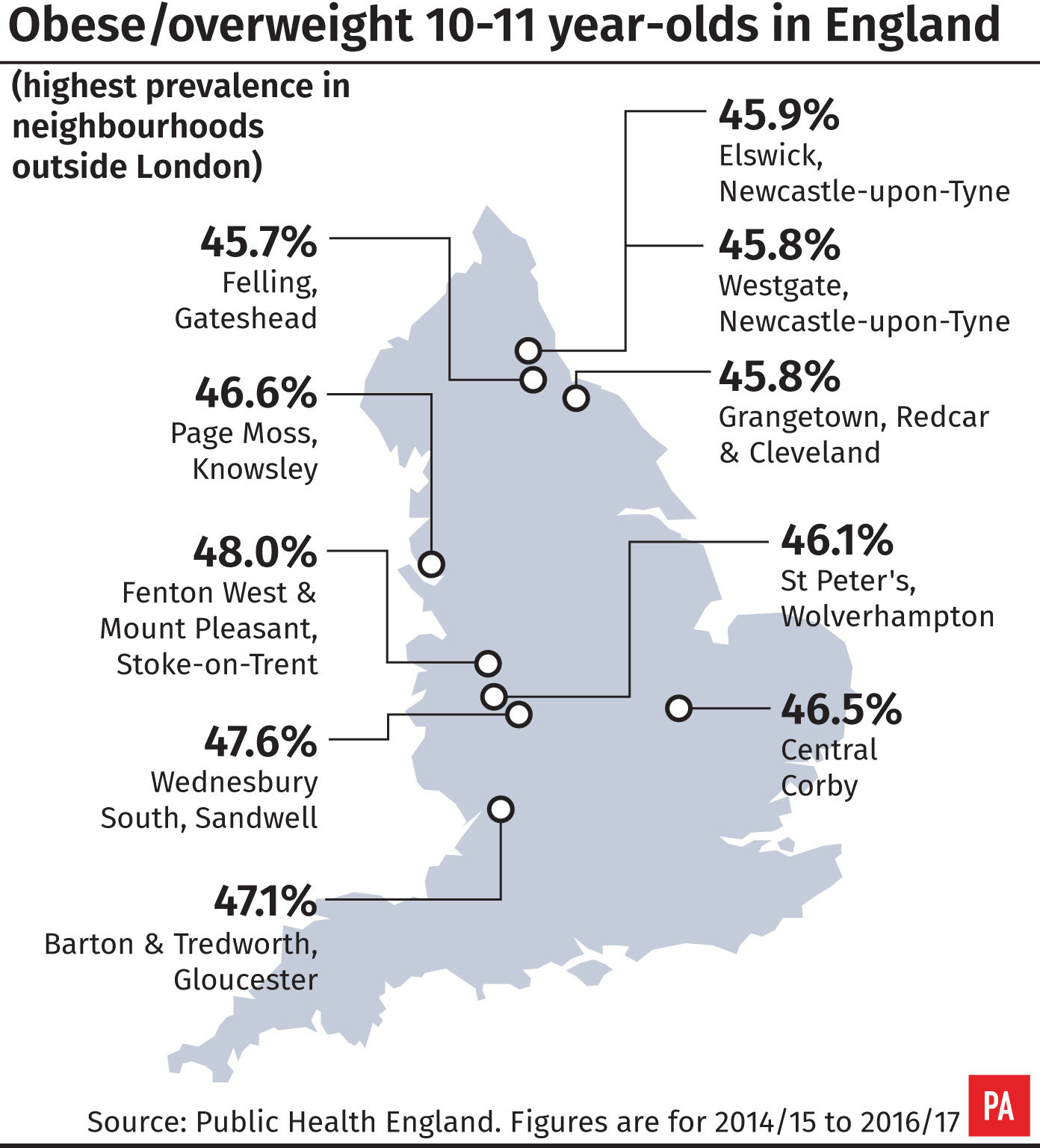Child obesity plan targets energy drinks and supermarket checkout ‘pester power’
Mandatory calorie labelling on menus and a 9pm watershed on junk food ads are also among the proposals.

A ban on selling energy drinks to children could be introduced under Government proposals to halve childhood obesity by 2030.
Mandatory calorie labelling on menus, an end to unhealthy products at supermarket checkouts, and a 9pm watershed on junk food adverts are also among a raft of measures announced.
Campaigners praised the “bold” and “ambitious” commitments in the second chapter of the Government’s childhood obesity strategy, but urged swift action to deliver the proposals.
Health and Social Care Secretary Jeremy Hunt said: “It is near-impossible to shield children from exposure to unhealthy foods.
“Parents are asking for help – we know that over three quarters of parents find offers for sugary sweets and snacks at checkouts annoying.
“It’s our job to give power to parents to make healthier choices, and to make their life easier in doing so.
“The cost of obesity – both on individual lives and our NHS – is too great to ignore.
“Today we are taking steps to ensure that by 2030, children from all backgrounds have the help they need for a healthier, more active start in life.”
The Government said it will launch consultations on a range of measures by the end of the year, in a bid to halve the number of obese children within 12 years.

They include proposals to reduce “pester power” by stopping supermarkets from displaying unhealthy foods at checkouts, aisle ends and store entrances, as well as stopping products high in fat, sugar and salt from being included in buy-one-get-one-free deals.
An end to sales of energy drinks to children, calorie labelling on menus in restaurants, cafes and takeaways, and the introduction of a 9pm watershed for advertising unhealthy products and similar measures online will also be put to consultation.
The Government said it will consider extending the soft drinks levy to milk-based products, if the industry does not sufficiently reduce the amount of sugar they contain.
Meanwhile every primary school will be encouraged to adopt an active mile initiative, such as the Daily Mile, which aims for every child to do at least 15 minutes’ running per day.
Professor Dame Sally Davies, Chief Medical Officer for England, said: “This is a strong, robust and bold chapter two which will help children live healthier lives and support parents across the country.
“This series of measures will undoubtedly help shift the balance towards a healthier environment.”
Labour’s shadow health and social care secretary Jonathan Ashworth called for “bold action not another watered-down, lame duck strategy”.
His party has called for a four-point plan to reduce obesity by the end of the Parliament, which put the health of children before “big business”.
He said: “The growing childhood obesity crisis is one of the starkest public health challenges facing our country. Yet the Prime Minister has overseen a dossier of failure when it comes to the health of our children.
“It’s completely unacceptable that big business has been prioritised above our children’s health and wellbeing, with over two years of meaningful progress being wasted through an entirely inadequate initial strategy.”
But health campaigners reacted positively to the measures, after blasting the “watered-down” first chapter when it was published two years ago.
Children’s Food Campaign co-ordinator Barbara Crowther said: “If the Government’s child obesity plan released two years ago was a disappointing starter, then chapter two promises a wholesome and effective menu of action, but still leaving room for a healthy next course.
“We fully support the Government’s intentions on junk food promotions and marketing, but the consultations to come will be crucial.
“A commitment to consider is not a commitment to act, and children’s health needs decisive action.
“There are still many measures that parents and health experts tell us are needed and we believe deserve attention in future, such as restricting kids’ TV, film and cartoon characters on junk food packaging, junk food sponsorship in sports and more local powers to tackle this issue.”
Caroline Cerny, of the Obesity Health Alliance, urged swift action on the Government plans, saying “if implemented, they have real potential to ensure that children in the UK will face the healthy future they deserve”.
One in three children are overweight or obese by the age of 11, according to latest official figures.
Steve Brine, Public Health Minister, said the plan would put parents in charge and help families make healthier choices that “provide a better chance at a longer, healthier life for our children”.
A British Retail Consortium spokeswoman said: “Retailers are fully committed to the health of their customers and are well aware of the scale of the obesity issue currently facing the UK.
“The industry has already played a leading role in reformulating products, promoting healthier alternatives and adopting easy to use on-pack nutritional labelling across own brand ranges.
“Tackling the causes of childhood obesity needs a comprehensive approach with all food companies as well as major retailers playing a full role.”





